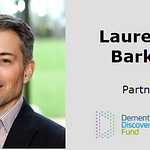In a recent interview with Panacea's founder, Dahlia Attia-King, we discussed the world of genetic testing, a subject I find profoundly impactful for the future of healthcare.
Florida-based Panacea, a one-stop-shop genetic health service provider, enables consumers to access genetic testing without requiring a doctor's visit or insurance approval.
Panac…







